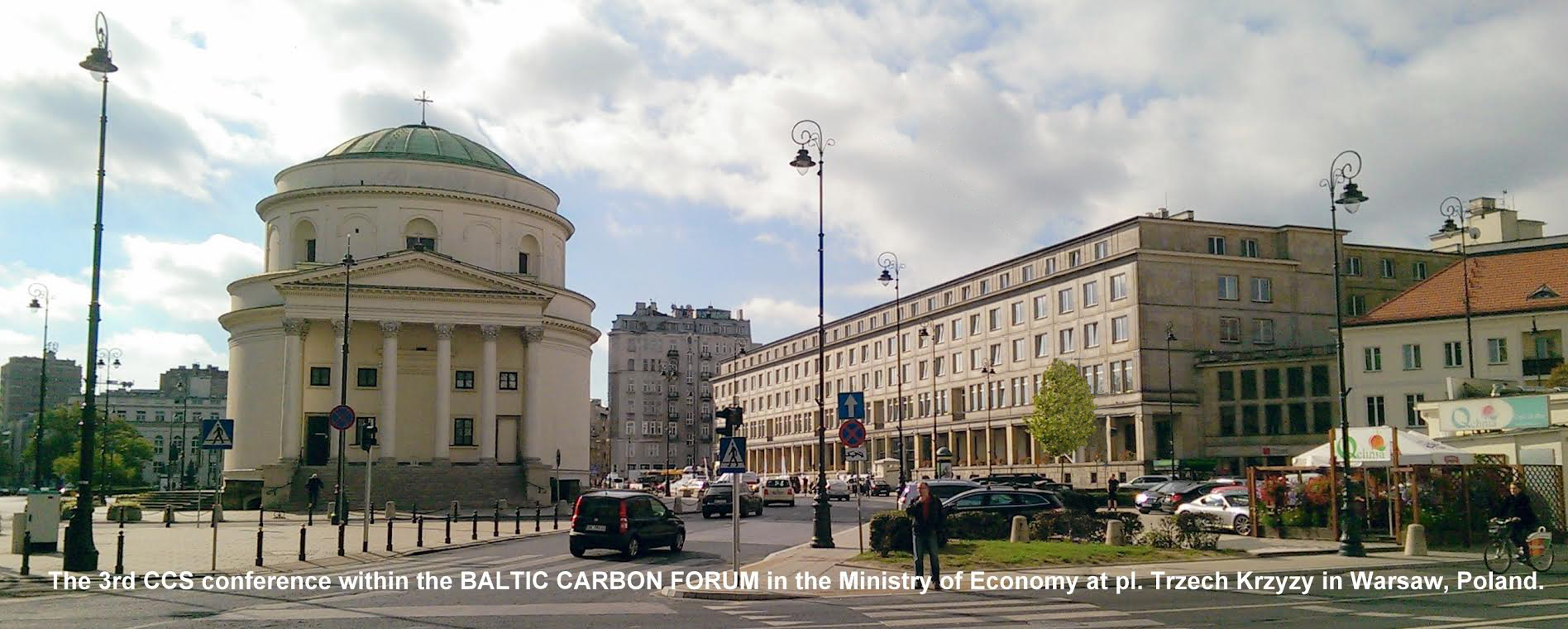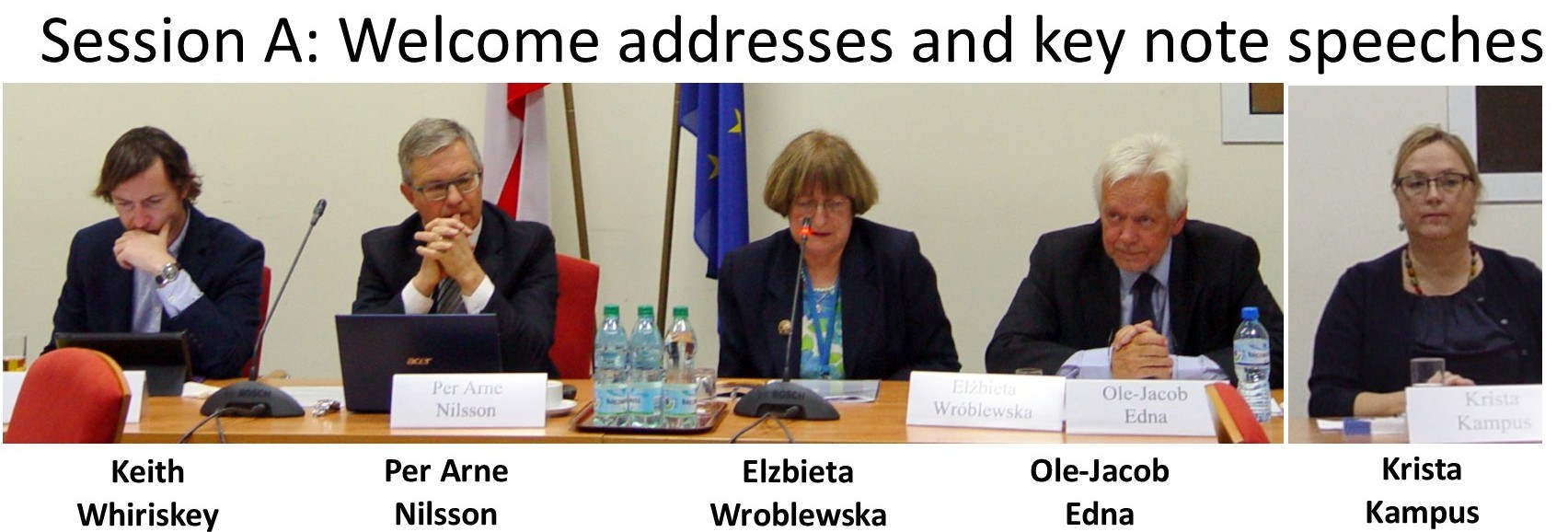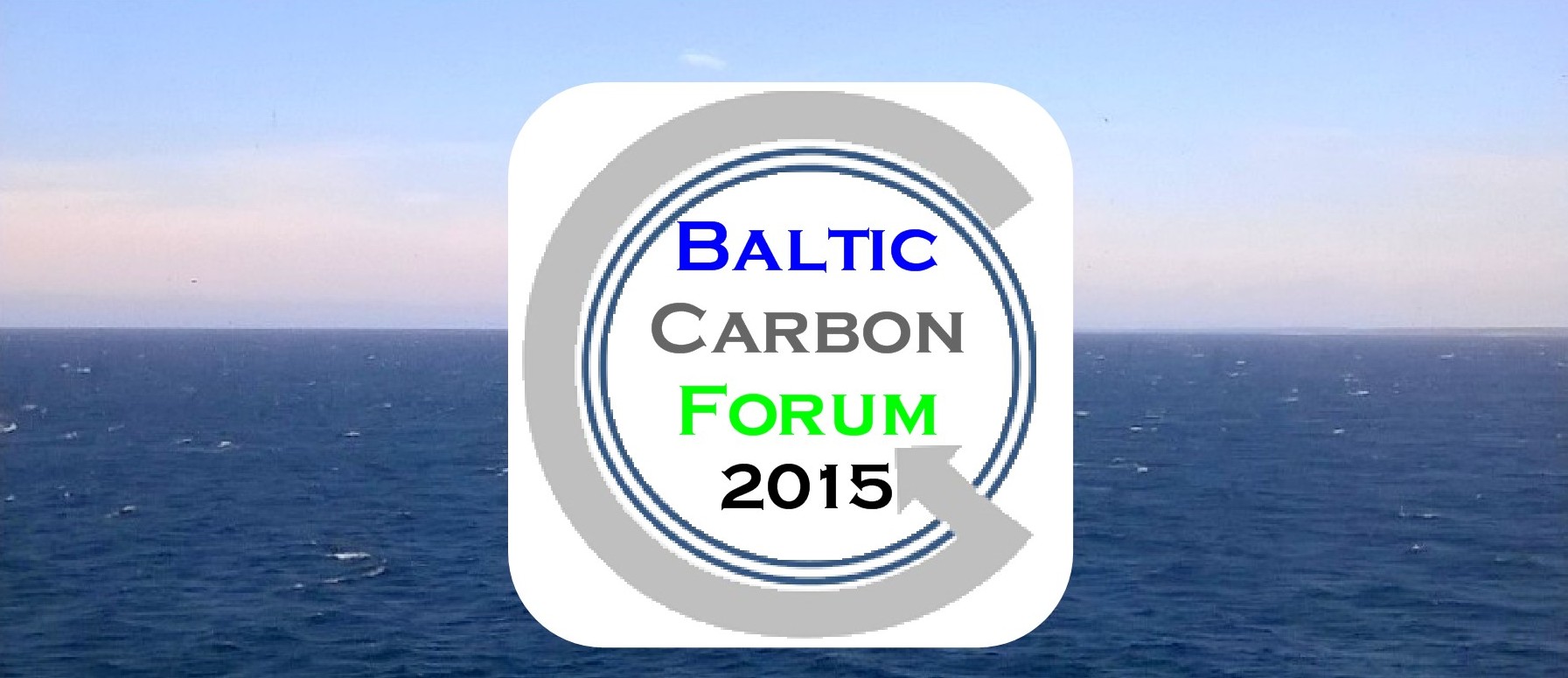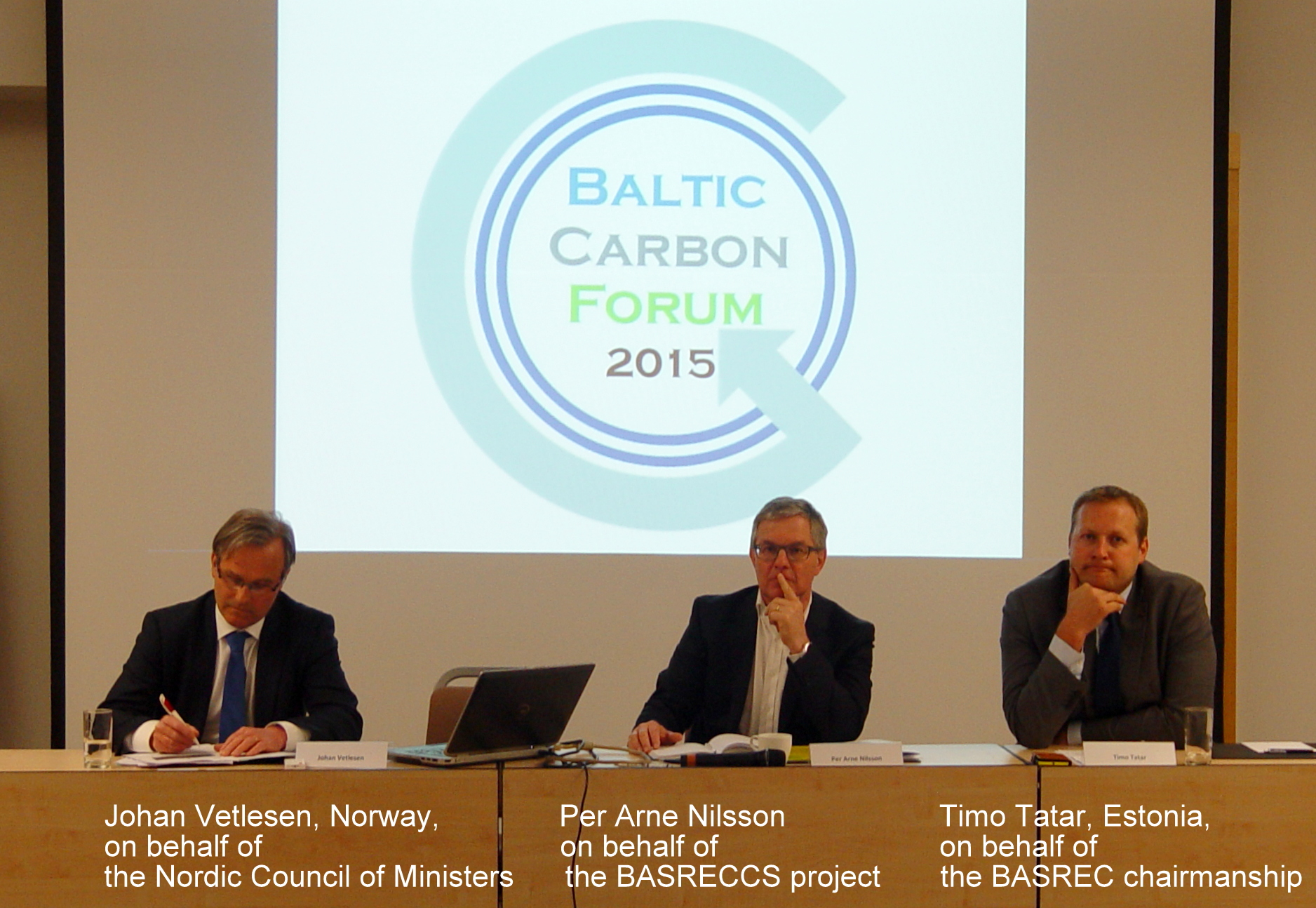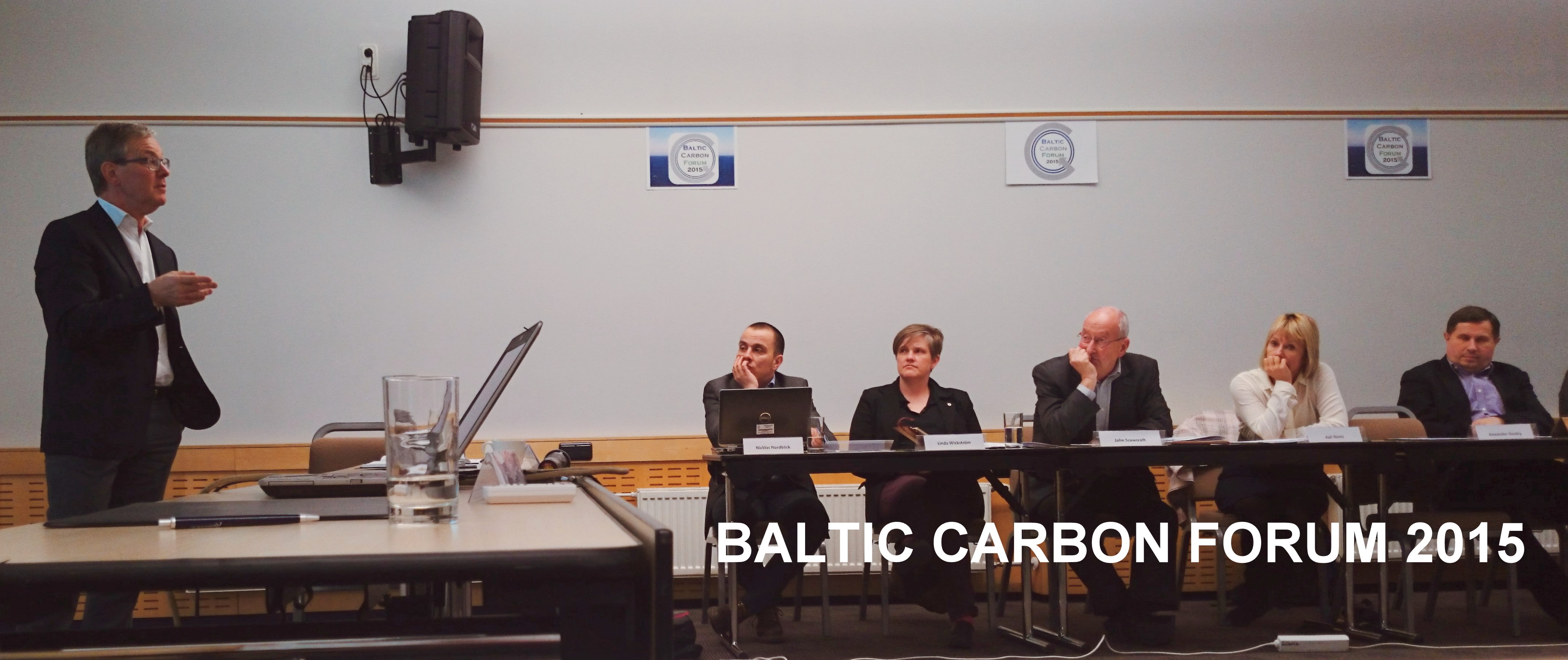3rd Conference on CCS
The third Baltic Carbon Forum with 40 participants was in Warsaw October 29-30th 2015, focusing on visions and barriers for CCS in the Baltic Sea Region with presentations on European, BSR region, Nordic and Polish CCS issues and the EU BSR strategy. In addition projects and plans for the future networking process were discussed in Task Force meetings.
Download the conference report, the conference programme and the presentations:
A-0 Welcome, Per Arne Nilsson
A-1 Conference opening, Elzbieta Wroblewska,
A-2 BASREC and Nordic Council of Ministers, Ole-Jacob Edna
A-3 Putting in place the means to deep decarbonisation – A Storage and Transport strategy for CCS in Europe, Keith Whiriskey
A-5 Vision and strategy for the sustainability and climate cooperation in the BSR, Krista Kampus
A-6 Polish views on CCS, Elzbieta Wroblewska
B-1 CCS in the Nordic Countries, Svend Søyland
B-2A CCS in Poland – an industrial case, Mariusz Milak
B-2B CCS in Poland – an industrial case, Krzysztof Lampert
B-3 Polish CO2 capture pilot, amine technology, Lucyna Więcław-Solny
C-1 Legal challenges for cross border CCS, Ingvild Ombudstvedt
C-2 Barriers on the way to a CCS system, Kjell Andersson
C-3 Social Acceptance, Mateusz Glogowski
C-4 Future EUSBSR CCS Flagship Project, Alla Shogenova
D-1 Multi-storey sequestration systems in Poland – safety and economy of the CCS, Grzegorz Pieńkowski
D-2 CCS in Poland, Aleksandra Koteras
D-3 Baltic region storage – project design, Nicklas Nordbäck
E-1 Consolidating the Network, Nils Rydberg
E-2 CO2GeoNet – the European Network of Excellence on the Geological Storage of CO2, Alla Shogenova
E-3 Closing comments and the way forward, Per Arne Nilsson
2nd Conference on CCS
The second conference BALTIC CARBON FORUM 2015 was in Tallinn on April 22-23, 2015 focusing on building and developing the network on CCS in the Baltic Sea Region.
Conference programme and presentations:
The conference programme was carried out during two days with more than 30 participants starting with meetings in the interim task forces and ending in a launching meeting of the network to confirm the network governance, work plan and activities. An instant report is distributed.
Conference presentations:
A-1 BASREC, Timo Tatar
A-2 Nordic Council of Ministers, Johan Vetlesen
A-3 CBSS-Baltic 21 – the main cooperation platform on low emission development in the Baltic Sea Region, Krista Kampus
A-4 The Network and Conference Program, Per Arne Nilsson
B-1 The Global Status of CCS, John Scowcroft
B-2 Sweden – Strategic Research & Innovation Agenda, Per Arne Nilsson
C-1 Cross-border collaboration – essential for geological succes in the Baltic Sea Region, Richard Vernon
C-2 3D-modelling the North German Basin, Gabriela van Goerne
C-3 Plans for phase 2 of SwedSTORECO2: Site characterization via seismic surveying and driling on Gotland, Chris Juhlin
D-1 Task Force – Geological Storage, Nicklas Nordbäck
D-2 Task Force – Communication, Kirsty Anderson
D-3 Task Force – Transport, Nils Rydberg
E-1 Funding opportunities in HORIZON 2020 and Interreg Baltic Sea Region Programme, Alla Shogenova
E-2 NORDIC CCS Research and the need for Baltic Cooperation, Matti Nieminen
E-3 Discussion – Network Synergies
E-4 WEB applications and The main areas of VNIGRI’s researches, studies of petroleum potential and opportunities of CO2 storage Alexander Illinskyi
E-5 Closing Comments and Way Forward, Per Arne Nilsson

1st Conference on CCS
The Conference was arranged in Warsaw on March 6-7 focusing on a road map for CCS in the Baltic Sea Region aiming at to clarify how joint regional solutions could lead to a rapid and more cost-effective implementation of carbon capture and storage projects with a specific view on regulatory issues and public acceptance. The findings of the conference was presented to the BASREC ministerial meeting in May 2012.
Conference presentations:
0-0 Welcome and opening remarks
0-1 Germany, chair country of BASREC
0-2 Poland, conference host country
0-3 Norway, project lead country
1-0 Session 1: Outlook for CCS in the Baltic Sea region
1-1 Global trends and outlook in CCS
1-2 Roadmap for the CCS Industrial Sector
1-3 Perspective of the commercial viability of the CCS technology
2-0 Session 2: The structure of sources, clusters and storage opportunities
2-1 Issues from the BASREC pre-study on transportation and storage solutions for CO2 in the Baltic Sea region 2-1 INSA Halfdan Wiig
2-2 The CO2 storage atlas and Norwegian experiences
2-3 Potential for CCS in the Baltic Sea region – sources and sinks
2-4 Geological potential of CO2 storage in Lithuania, Latvia, and Estonia – an integrated approach
Part 1-13
Part 14-27
Part 28-39
3-0 Session 3: Regulatory issues and public acceptance
3-1 The implementation of the CCS Directive and the NER 300 funding programme
3-2 The CCS Communications Challenge
3-4 Social acceptability of CCS technology in Finland
4-0 Session 4: Possible cost effective storage and transportation solutions
4-2 Cost of large scale CO2infrastructure
4-3 Storage and transportation solutions for the Baltic Sea region
5-0 Session 5: What should authorities do and how should it be done?
Conference on CCS instant report 2012
Final INSA report 12.3.2012
